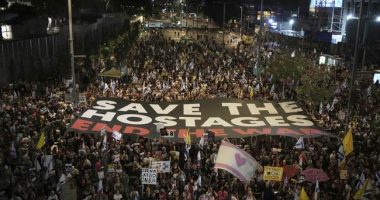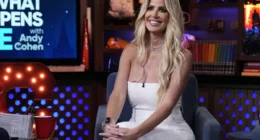While the intent behind the policy of keeping children safe online has largely been praised, there are serious questions coming from overseas about how the age limit will be enforced.
“I don’t think anyone knows the answer to that question,” Oxford University professor of human behaviour and technology Andrew Przybylski told CNN.

“There really isn’t a particularly clear plan here about how you would enforce something like age targets on users.
“We know that the technology to estimate ages is fundamentally flawed…
“Other countries have tried versions of what the Australians are about to embark on, South Korea actually turned the internet off for all under-18s for more than a decade, and they found that none of the technology actually worked.
“And when it did work, there was no… improvements to sleep, no changes to wellbeing or school marks.”
Behavioural science professor David Ellis from the University of Bath said Australia’s laws were “doomed to fail”.

“Teens… have not only been largely excluded from the debate, but will work around the ban using VPNs or associated technologies,” he said.
“Even the definition of what constitutes social media is unclear. All in all, it is a sad day for evidence-based policy.”
Will Guyatt, a tech journalist and former Facebook and Instagram employee, said there was a chance the policy would lead to social media platforms abandoning Australia.
“You could imagine that some of the social networks might say, ‘We don’t want this hassle’,” he told CNN of the $50 million fines the tech giants will face for not taking reasonable steps to keep children off their platforms.

“And Australia will not be the largest market (for) any of these platforms.
“So it’s going to be very interesting to see whether the social networks comply or decide they’ve had enough and move out of Australia.”
Przybylski said there could also be potential issues under international law.
“There are real human rights implications for this, depending on how it’s implemented,” he said.
“Australia is a signatory to the UN Charter of the Rights of the Child.
“Young people have a right to information. Upwards of 60 per cent of young people in Australia get their news from social media…
“This is the equivalent of taking your shoes off at the airport – it doesn’t make flying any safer. This is, well, this is theatre, this is wellbeing theatre.”

“I’m strongly against it,” a young woman in Madrid said.
“We are a new generation that is accustomed to having social media in our lives, and it’s something we use on a daily basis.
“And I think restricting our use isn’t going to help us.”
”I know it’s a bit controversial but I actually think it’s really good that they did that,” a Londoner said.
“I think it’ll be good to keep kids off social media for as long as they can, even if it is kind of a forceful thing.”
“There’s a lot of stuff online that is quite dangerous and scary for young kids to see,” another said.
“So I think it’s good to have some sort of ban.”
But not everyone was quite so measured.
“That’s kind of crazy to me,” another punter said.
“I grew up with social media… I feel like people under the age of 16 right now wouldn’t know how to live without their phones and social media.”
Australia’s ban will come into effect late next year.






